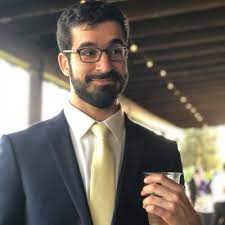
Image via Unsplash
Voucher schools haven’t lived up to promises, have become “gated communities for more affluent kids,” drain resources from neighborhood schools, and now are less likely to teach what makes affluent parents (and some voters) uncomfortable.
On April 5, voters across Wisconsin went to the polls to vote in hundreds of school board races. What were once quiet, nonpartisan elections became mired in anger, controversy, and culture war issues surrounding race, LGBTQ students, and the coronavirus pandemic. For much of the past two years, an alliance of (mostly) right-wing politicians, donors, activists, and yes, some parents—spurred on by conservative special interests and right-wing media—waged war on school boards, teachers, and administrators via a series of well-coordinated, well-funded, propaganda-fueled attacks.
This coalition argues that it’s merely fighting for “parents rights,” “school choice,” and to prevent an alleged indoctrination of children. But public education advocates believe this effort represents just the latest step in a long-term conservative project to weaken and ultimately destroy the public school system that 800,000-plus Wisconsin students and their communities rely on in favor of a private system designed to primarily benefit the wealthy few.
This week delivered the first tangible results of the conservatives’ efforts and the outcome was something of a mixed bag. While right-wing school board candidates rode culture war issues to victory in places like Wausau, Kenosha, and Waukesha, they fell short elsewhere—in communities such as Beloit, Eau Claire, and LaCrosse.
The fight over control of school boards—and of public education itself—is far from over, though. After all, the recent attacks on public schools are not isolated. Instead, as Prof. Michael Apple, a professor of Curriculum and Instruction and Educational Policy Studies at UW-Madison, has noted, they’re the culmination of decades of efforts from Republicans to undermine public education. Apple, himself a former K-12 teacher, union leader, and renowned educational theorist, has written extensively about public education over the years, about what it is and what it should be.
To better understand the right’s war on public education and where things stand now, we interviewed Apple. The interview has been edited for clarity and brevity.
What are your main takeaways from the recent school board races?
Apple: It’s mixed. Some districts where I think conservatives thought they would do better and put a lot of money into, it didn’t turn out the way they expected. In certain districts–Eau Claire, Beloit, and Madison, for instance—it looks as if things turned out by and large in a way that more Democratic and progressive educators and communities won.
In other places like Kenosha, the extra money made a major difference. The other thing though that sticks out is the discourse itself. It’s become much more politicized and almost toxic and that I think is just as worrisome. Even if the elections didn’t go the way in some districts the way conservatives may have wanted, they have changed the discourse, and that’s in many ways almost like a Trump effect. Even though Trump did not win re-election, the elections themselves have been major transformations of what counts as legitimate speech in the way in which people are treated with disrespect.
Broadly speaking, what is the state of public education in Wisconsin?
There’s the reality and then there’s the picture that is made public. Wisconsin historically has believed, at least officially, that it has strong public schools, that the schools are funded highly, that the university system is the university for all. All of that historically is partly true. But the reality right now actually is very different.
Wisconsin has among the highest rates of differential poverty in the United States. It has among the highest rates of imprisonment of people of color in the United States. In order to understand what’s going on in schools, you have to understand the larger context of increasing impoverishment, of the defunding of public schools and a movement quite strongly by this legislature in particular around what might be called “neoconservative” and “neoliberal”—a belief in the idea that private institutions are necessarily good, and public bad.
Competition, a mistrust of teachers, struggles over school boards, and cultural struggles over what knowledge should be taught—you package that all together and what you get is a school system that is in difficulty. There are still some very fine school systems, deeply committed teachers, deeply committed school boards, and deeply committed communities, but by and large right now, it’s a tough time in Wisconsin.
Republicans in the legislature introduced a bill this year to make most private school students eligible for a taxpayer-funded tuition subsidy. What are your thoughts on that and school voucher plans in general?
Historically, democracy and education in Wisconsin have been this vision exemplified by the idea that the task of schools is to increase life chances and be responsive to the majority of people in Wisconsin. Now, that’s a very progressive vision. It’s what we call, theoretically, “thick democracy”—that the role of public institutions is to respond to the needs in daily life of the vast majority of people here, not just the businesses, but everybody.
That has been defended and that still has some power here. But the neoconservatives and the very conservative Republicans now increasingly in power want to change that to individual consumer choice. They want to put everything on the market and democracy, then, are individuals making rational choices about their kids and about their own futures. The idea here is that social justice and democracy for everybody will take care of itself if everybody has choices.
There is very little evidence to support that as a major policy. By and large we have evidence that voucher plans don’t work as well as the rhetoric says they do. They increase school segregation—which is already pretty bad in Wisconsin—and increase the chances of more affluent people.
I want to be careful about overstating that because there are segments in the Black and brown communities, especially the Black communities in Milwaukee, Racine, and elsewhere—some parts of those communities believe quite strongly that they need to make a compromise, that they need to control their own schools because again, we have among the highest rates of differential achievement in the entire nation between Black and white kids.
Those rates have gotten better in some cities, but certainly not enough, and as the father of an African-American child myself, I do have some sympathy with those communities who say, ‘We’re getting hurt by current policies. We have to try something new.’
But again, I think what we’re seeing is this vision of just turning to the market and forcing schools to compete with each other, forcing teachers to compete with each other, attacking school boards, and doing away with strong unions—and that’s been a horrible success for the right here.
Can you talk more about the historical impact of voucher programs in Wisconsin?
There’s also been a lot of myths about voucher schools. A lot of this data on voucher schools is really flawed. For many years, voucher schools did not have to take the same tests that were used to monitor and hold public schools accountable. Many voucher schools—especially those that were private sector or supposedly non-profit but really for-profit—also closed. In some places, 30% to 50% of the voucher schools closed.
There are some voucher schools that have proven to be successful for kids from minority backgrounds. But I would also argue very strongly that we shouldn’t just be looking at the test scores. One of the things that the right says is, ‘You want to hold everybody accountable and like businesses, [schools] should be held accountable to the bottom line.’ And the bottom line, we are told, is test scores.
So increasingly, teachers are being told they have to teach for the test and that’s going on in public schools as well as private, but certainly in voucher schools. That means that the skills teachers have to make curricula more responsive to kids’ needs, responsive to their hopes and dreams and their own cultures—those skills are not put in place.
Teaching for the test has increasingly become the general model, but test scores should not be the arbiter of what makes a school good. Public schools are called upon to deal with every kid and to teach about everybody. Now that seems like just a slogan, but public schools as public institutions have to teach about the real history of the United States. They have to be responsive to the multiplicity of cultures, religions, and languages, etc.
Voucher schools don’t have to do that at all, so what we get is increasingly schools that are gated communities for more affluent kids, where you respond to more affluent parents or to more religious parents and they don’t have to teach anything that isn’t representative of the parents.
Conversely, it means that we have a public school—which has to reach everybody—becoming underfunded as money is drained from public schools and goes to voucher programs and supposedly nonprofit charter schools—though, for many of them, they are actually closest, for-profit schools.
It’s actually quite a tragic situation. Teachers become alienated, they become less autonomous with less respect, and money is drained from public schools and goes to private schools, thereby supporting the vast majority of privatizing parents.
Gov. Tony Evers and school leaders asked the legislature for more school funding, but Republicans declined the request. What are the consequences of schools not getting enough funding?
It’s not just blocking funding for education, but actually it’s blocking funding for public education, because again, we need to connect this to voucher plans and more funding and more people getting those. It’s basically a vast tax sharing program.
Short-term, it means that school districts, which are already in dire situations financially, will not have money to be in the recruiting game to get the teachers they need at a time when many teachers are planning to retire or leave. It also means that class sizes will probably go up even though the birth rate is going down. It means that parents will be in districts where there will have to be referendums on ballots to try and raise more money for schools. Many districts will just not have enough money and there’ll be more and more failed referendums.
Then there’s a last thing and that is the loss of faith in public institutions. All of this is part of an agenda that is anti-public and as we see that there’s less money going to public schools and more money going to private schools, we’ll have a growth in private schooling, and again an increasing crisis in public schools, with more demands on public schools. So this would mean again that public schools and public institutions will be in grave danger.
The Republican-led legislature also passed a bill to dissolve Milwaukee Public Schools into four to eight smaller districts. Gov. Evers promised to veto the bill, but I’m wondering what you think is driving this effort?
I don’t know everything about this. Some of it is a response to the history in Milwaukee of Black communities saying we need to control our schools, but I have strong worries that the ultimate effect will be to give stuff to white conservative parts of the community. I don’t think that it will give oppressed communities and communities of color the major say that I think they deserve.
I worry that it will lead to cultural segregation rather than a curriculum that everybody needs to know and that’s been the history of the breaking down of school districts into these sorts of fractures and so that worries me.
Wisconsin Republicans also passed a so-called ‘Parental Bill of Rights’ and want to give parents the ability to sue government offices or officials when those rights are violated. Most notably, under the proposal parents would be able to sue teachers and staff who use the names and pronouns their own children want to go by. Where do you stand on these sorts of efforts?
Rhetorically, the idea that parents should be able to have to say about what their kids need is a good idea. But we have to ask what this is connected to. If this was simply part of saying that anyone who has a kid in schools or anyone who’s part of a community that has kids in schools have the right to go in and have a voice—who could argue with that? But we have to then look at the other stuff they’re doing at exactly the same moment. Cutting health-care, cutting funding for public schools, cutting money for unhoused people. All of that is going on simultaneously.
I think this is part of a much larger agenda and they are extraordinarily tactical about this.
Republicans also passed legislation limiting how race and history are taught as part of the conservative backlash to Critical Race Theory, a graduate-school level concept that is not taught in K-12 schools. Gov. Evers vetoed the bill, but do you believe the bill and other efforts like it are a form of censorship?
Of course it’s part of censorship, but we again have to ask, ‘Why has this caught on?’ Republican legislators wet their finger and they put it up in the air and they say, ‘What can we do to mobilize parents who are really, really worried about their kids?’
Let’s take as an example the building of the Foxconn warehouse and factory in the southern part of Wisconsin. That has turned into a fiasco. But for many people, they would support it in the same way that many people around Madison and in the rural community are supporting Amazon warehouses. The job situation has been horrific. Only about two of three jobs that are being created in Wisconsin right now require more than a high school degree and many of them don’t even require a high school degree. They pay very poorly. They are non-unionized. They’re often, in the service sector, what are called zero-hours jobs—which means you don’t know how many hours you’re working until that week.
People are really scared about the future of their own lives, but also the future of their kids, and so what Republicans are saying—’We want really important knowledge, job skills, stuff that has an economic future, but also solves the problems as rents go up, as banks foreclose on houses. We promise you that we will give you a say, but also we will make certain that what is really important knowledge is not literature, it’s not multilingual studies, it’s basically a curriculum that is sure to get kids jobs’—that responds to real issues.
People are scared out of their minds and people who are often not racist—or at least don’t think about these things—they’re scared. If you can turn the tables and say the real issue is not that people are losing their jobs because profits are more important and shareholders deserve more money than workers, but the real problem is that look at what these schools are teaching…that responds to many of the fears. It’s a brilliant strategy and it is often quite racist in and of itself. So in that sense, it’s censorship, but again, it’s part of a very tactical agenda to get people to support the larger project—which is a corporate project—and so they use patriotism and they use their religious understandings and all of that.
The right has been brilliant in shifting the blame from their own decisions on to the backs of people who are really justifiably scared.
Republicans are attacking public schools even though the vast majority of Wisconsin families rely on them. How does that square with the GOP being the self-described party of “family values”?
Who do they think are families? To them, there are makers and takers. Families are married people, straight people, not gay people. Families are people who hold jobs, who go to Church—by and large, it’s church, not mosque or synagogue. Families are stable, they are respectable people. So there’s we versus the others. So who are the takers? The takers are people who don’t work very hard, who supposedly don’t have the values of good Christians.
They have a very limited vision—and quite a dismissive one—of what counts as families and one that is so ahistorical it’s quite remarkable.
There’s a rising lack of faith in institutions and as you’ve said, the right has obviously contributed to that. But for people who want those institutions to survive and improve, what can they do? How do they re-instill trust in public education and make it work for all Wisconsinites?
This is a very complicated issue. It took right-wing mobilizations and groups 30 or 40 years to make it possible for them to do what they’re doing, and so we should take the long view on this. It’s going to take school boards going out into the communities, teachers and teacher unions going out into the communities to make the best case that they can about why public institutions and public schools are crucial right now. That will take years and years and years.
They seem like small steps, but it does require for instance that people take risks. It does require that people talk to each other. I don’t mean to be romantic about this. I don’t think that a talking cure necessarily leads to more civil discourse, I think there’s major changes that have gone on, but progressives have to take the first step.
But the next steps have to be that many of the conservative members of movements, media, etc. also have to do exactly the same thing. I don’t want to put the burden only on progressives on this. I think that’s a mistake. It requires that the right also do some work and principled conservatives do as much work as school board members and others who are not ultra-conservatives.
The second thing I think we need to do is to make it much clearer why we are engaged in a situation where issues of race, issues of sexuality, issues of censorship etc. are really, really crucial to active citizenship. Rather than immediately calling opponents of these kinds of things racists, I think that we have to begin to reach out and say, ‘Here’s why’—that is, to make the public arguments in ways that are a bit more respectful.
Do you think November’s elections will be important for the future of public schools in Wisconsin?
I think it will be crucial. If you look for instance, at Evers and the right-wing leaders in the legislature, there is no doubt that if Evers were to lose that the kinds of people who will be put in place in committees, the kinds of people who would be hired as chancellors of universities would be very, very different, and that also is worrisome. The leadership of our university I think would be affected.
Legislation targeting teachers and professors for teaching courses labeled as Critical Race Theory will be passed. It will have a major effect at all levels of schooling and in the government itself. The norms that guide disagreement will be, ‘If we disagree with you, we give you no respect,’ and the right has shown that it is perfectly willing to do that. This is a worrisome time.
Is there anything else you want to add?
We’ve been through this before. When I was a child, we had what was called the Red Scare and that was a time when anyone who dared to challenge large business enterprises, to challenge the destruction and the tax on unions, the destruction and attacks on mobilizations around immigration [faced scrutiny]. We’ve been through this before. It is not automatic. This is not a pendulum that automatically will swing towards a more progressive politics, more progressive legislation, or a more ethical set of interactions. So it’s not automatic, but having lived through this before, it is clear that there is work to be done and the work can be successful.
When I was a child, there were movements to say the religious affiliations of the United States are varied. It should not be assumed that one religion is all we need to have to make this nation into the democratic possibility that it can be. And that changed. It took a lot of work legally, in terms of social mobilizations, in terms of legislation, to make it a fairer and more just nation.
We are facing that again right now. So we shouldn’t be pessimistic totally. Knowing our past, knowing we’ve been through these periods before, and with a lot of work from below, these things can be defended.
Politics

Biden makes 4 million more workers eligible for overtime pay
The Biden administration announced a new rule Tuesday to expand overtime pay for around 4 million lower-paid salaried employees nationwide. The...

Biden administration bans noncompete clauses for workers
The Federal Trade Commission (FTC) voted on Tuesday to ban noncompete agreements—those pesky clauses that employers often force their workers to...
Local News

Readers Poll: Top Bowling Alleys in Wisconsin
Looking for the best bowling in Wisconsin? Look no further! Our readers have spoken in our recent poll, and we have the inside scoop on the top...

8 Wisconsin restaurants Top Chef judges are raving about
Top Chef’s 21st season is all about Wisconsin, and on-screen, it’s already apparent that the judges feel right at home here. But, while filming in...





